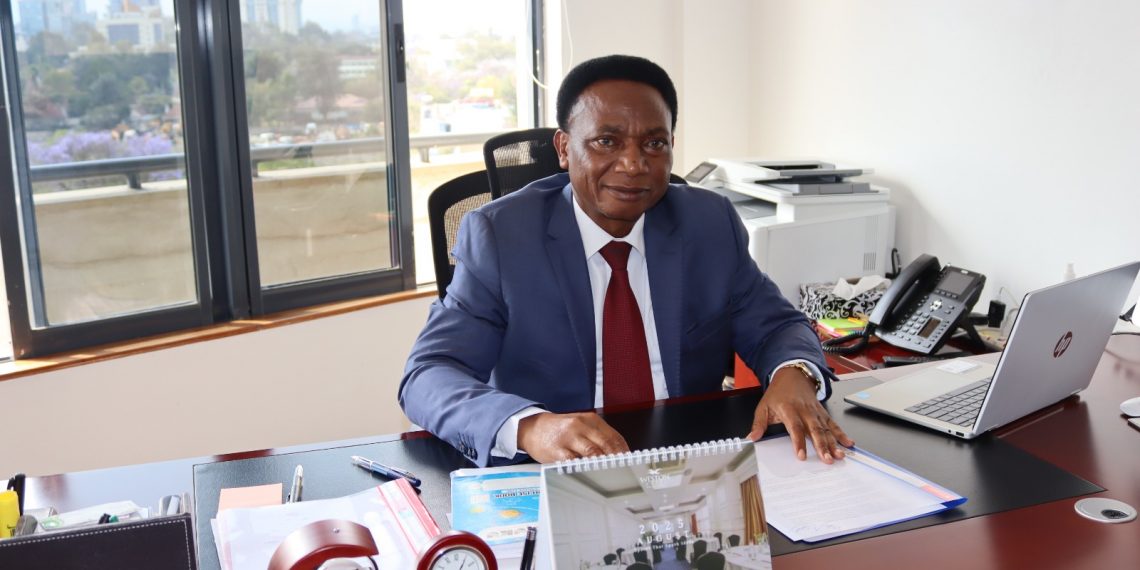The Kenya Health Professional Oversight Authority (KHPOA) is moving to address gaps in health workforce regulation and training as the country pushes toward achieving universal health coverage (UHC).
Dr. Kioko Jackson, the Authority’s Chief Executive Officer, says KHPOA’s mandate under the Health Act is to safeguard standards in both professional training and practice. This involves ensuring that doctors, nurses, clinical officers, and other health professionals are trained and licensed according to strict regulatory guidelines.
“We ensure that the standards set by regulatory boards and councils are implemented and complied with,” Dr. Kioko explained. “Any professionals coming out of training institutions must meet the required standards without compromise.”
Oversight of Training Institutions
KHPOA monitors both mid-level and university training institutions, checking infrastructure, faculty numbers, student admissions, and laboratory equipment meet the regulatory standards.
The Authority also checks if Institutions use approved training curricula that align with national health priorities.
“We make sure training institutions produce what the country needs professionals who are fit for purpose,” Dr. Kioko said adding that “the authority also ensures that training can adequately respond to the Country’s changing healthcare needs and strengthen capability of health professionals to deliver the Universal Health Coverage (UHC).”
According to Dr Kioko, KHPOA recently assessed 40 training colleges and more than 100 programs and identified compliance gaps ranging from curriculum approval to faculty staffing shortages. Colleges found to be non-compliant risk closure, while partially compliant ones are given timelines to meet requirements before re-inspection.
Challenges of Overlaps and Gaps
Dr Kioko further elaborated that KHPOAs major regulatory challenge lies in Kenya’s fragmented oversight.
He explained that the Authority has mapped out 42 health professional cadres, however only 13 cadres are governed by statutory laws passed by Parliament. The remaining 29, though active in both public and private sectors, lack clear regulatory frameworks.
“This raises the question: how do you hold them accountable for malpractice or misconduct?” Dr. Kioko noted.
In order to fill the gaps, KHPOA has developed criteria under Section 61 of the Health Act to create a more inclusive and efficient regulatory framework that covers all cadres.
Another challenge is overlapping mandates among existing regulatory agencies, which creates confusion over scope of practice. “When functions overlap, people end up doing what they were not trained to do,” he said.
Mushrooming Medical Colleges
Dr Kioko says that rapid increase in mid-level training institutions has also raised the Authorities concern.
“It is like there is money in starting a medical college and everybody wants to mount a health programme,” Dr. Kioko observe adding that, “Many of these programs, however, are not aligned to Kenya’s health needs.”
KHPOA is working with the Technical and Vocational Education and Training Authority (TVETA) and the Kenya Medical Training College (KMTC) to regulate new health courses.
“Any new program must first go through TVETA for basic requirements, then come to us for professional standards approval,” he said.
Defining Scope of Practice
Perhaps the most critical reform under way is the standardization of scopes of practice for health professionals.
According to Dr Kioko, for years Kenya lacked clearly defined boundaries, leading to cases of professionals working beyond their training.
He says that Scope of practice should be dependent much on the content of the curriculum.
“If the curriculum development does not involve all stakeholders, key stakeholders, then it is likely to have elements that may also be contained in another curriculum for another profession or cadre, developing scope of practice, you need a curriculum. Because it is within the curriculum where you draw out the competencies that are needed to practice.”
He said that the Ministry of Health has established a committee to harmonize scopes of practice across cadres.
“If you go beyond your scope, that amounts to malpractice, indiscipline, and abuse of license,” Dr. Kioko warned.
Clear scopes of practice, he added, will reduce medical errors, improve referrals, and ultimately enhance patient outcomes. “The quality of care improves when professionals know their limits and when to refer a case.”
He explains that the term scope of practice (SOP) refers to the limits of a health professional’s knowledge, skills and experience and reflects all tasks and activities they undertake within the context of their professional role.
“Inconsistency in definitions of SOP contributes to uncertainty and confusion regarding professional practice boundaries and potentially impacts societal access to safe, effective and efficient healthcare delivery.”
Ethical Conduct and Patient Referrals
KHPOA has also developed an integrated code of professional conduct and ethical practice to guide practitioners on patient engagement, diagnosis, treatment, and referral.
A key focus is addressing the reluctance of some professionals to refer patients sometimes due to financial motives or fear of appearing incompetent.
“This mindset of holding onto patients has hurt outcomes, especially in oncology, where late referrals worsen survival rates,” Dr. Kioko said. “We want to inculcate a culture of timely referrals, effective management, and better health outcomes.”
Supporting Mid-Level Institutions
Despite the challenges, KHPOA acknowledges the vital role of mid-level training colleges, which produce the bulk of Kenya’s health workforce. The Authority holds biannual stakeholder forums with these institutions and conducts quarterly assessments to maintain quality.
“Our goal is not just policing but supporting institutions to comply and improve,” Dr. Kioko emphasized.












